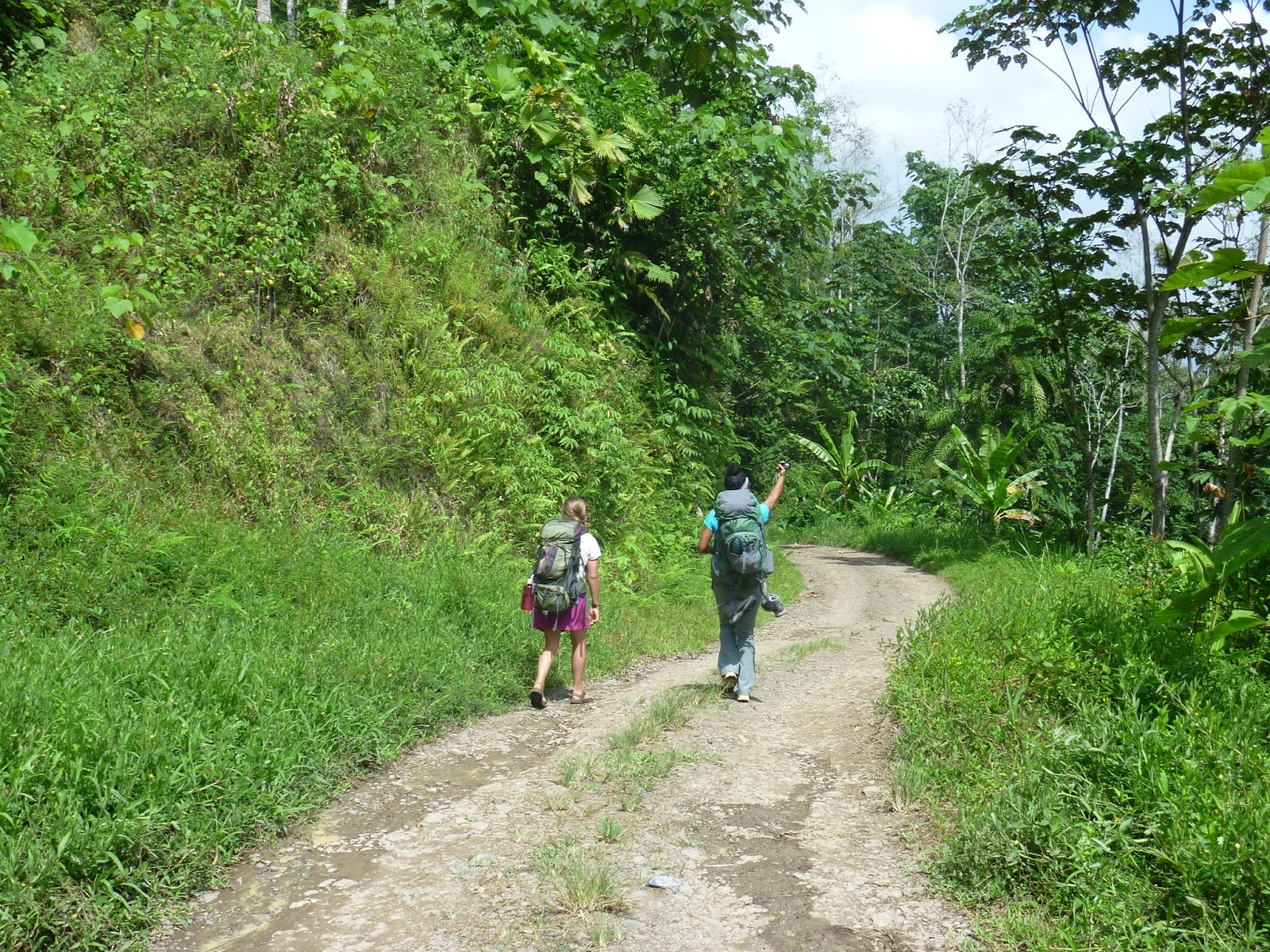A good, big backpack.
As you may have guessed by this and some of my other posts, I didn’t own any outdoor equipment before my move to Panama. I figured that my giant, 70 Liter NorthFace backpack would be used once to move to my site and once to move home, but that was before I had to hike 2 weeks worth of groceries into site or carry a week’s worth of stuff throughout the country. I use this bag almost every time I leave my site, and can’t imagine having to use one that didn’t have plenty of space or good support.
My Chacos.
Though I grew up in the countryside of East Tennessee, I
never would’ve considered myself an outdoorsy type of person before joining the
Peace Corps. I couldn’t remember the
last time I had gone camping and almost all of the outdoor activities I did
participate in focused more on the outfit and photos than anything else. Needless to say, Chacos had never claimed a
spot in my closet. But oh, how times
have changed. My trusty outdoor sandals
are the only shoes that can put up with anything I throw at them. From gravel to grass, flooded rivers to muddy
slopes, it only took a month without them (my hand-me-down pair finally gave in
last December) to realize that no other Panamanian shoe can fill my city and
village needs.
Massy.
I picked out my sweet pup two days after he was born and
we’ve been inseparable ever since.
Whether we spend the day hanging out in my house or are on the run from
dawn to dusk, this dog can put a smile on my face no matter how rough the day
may be. I get a lot of questions about
what it’s like to keep a pet as a Peace
Corps Volunteer, and I can’t repeat it enough- the benefits outweigh any
and every cost. Especially when you’re
lucky enough to end up with one as great as this little guy.
My iPad.
I had no idea how much free time I’d need to fill while
serving as a Peace Corps Volunteer.
Obviously, I like to be productive as much as I can, but I still found
myself overwhelmed by endless, empty rainy afternoons, unlit evenings, and
hours upon hours in busses and waiting for busses. The iPad my dad got me last Christmas has made
me so, so much happier. I’ve powered
through tons of books- no headlamp required, filled hours of public transport
with podcasts and document editing, and checked my social media accounts at the
drop off any wifi zone’s hat. Though I
haven’t had experience with other tablets, I love the durability and versatility of my iPad, and
the battery life isn’t too bad either.
Just make sure you stock it with a strong, waterproof case to guard it
from any children or flash rainstorms.
Hammocks.
You’d be hard pressed to find a Peace Corps Panama volunteer
who doesn’t own at least one hammock, and I’d be quick to claim that there’s
good reason behind that. Our hammocks
are the perfect place to sit back and relax with a book, take an afternoon
siesta, chat with a community member, or daydream about all the foods we’re
missing. Parachute hammocks do double
duty since they’re the perfect accompaniment to any site visit in which bedding
could be questionable. A comfortable
night’s sleep that can roll up into the size of my Nalgene? I’ll take two, thanks.















